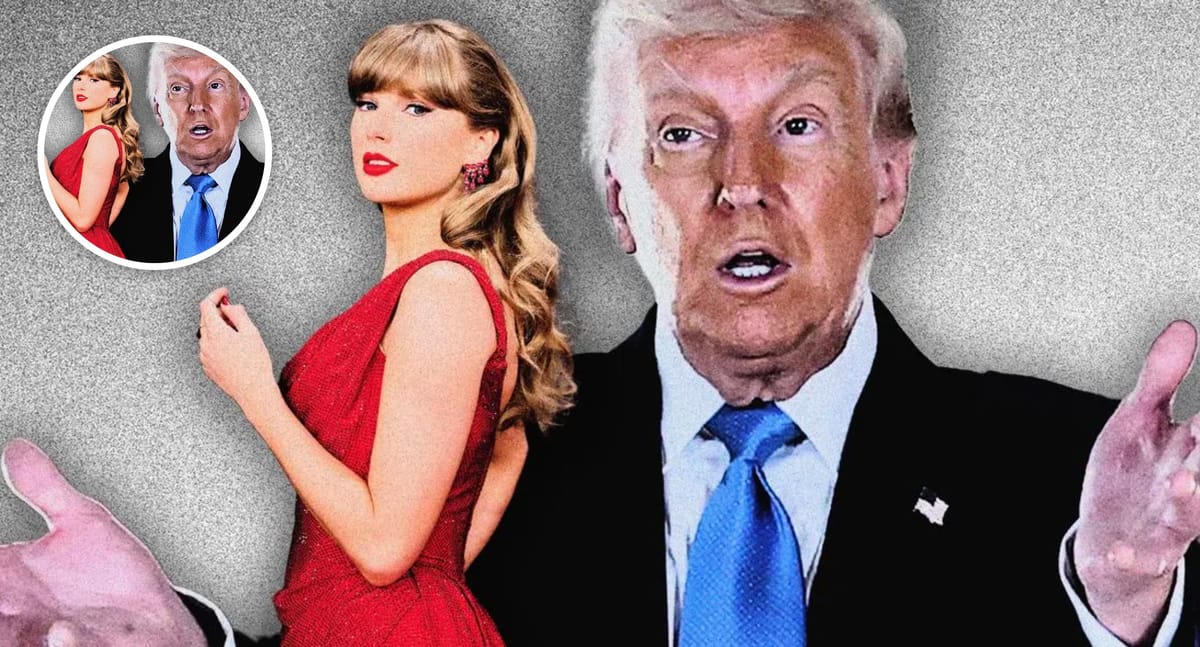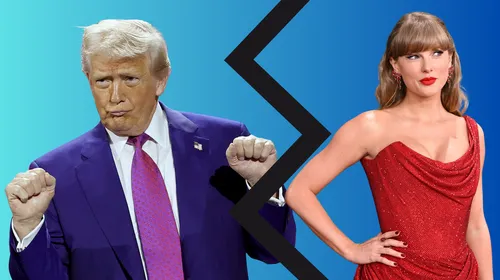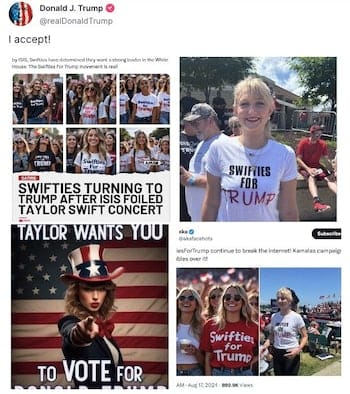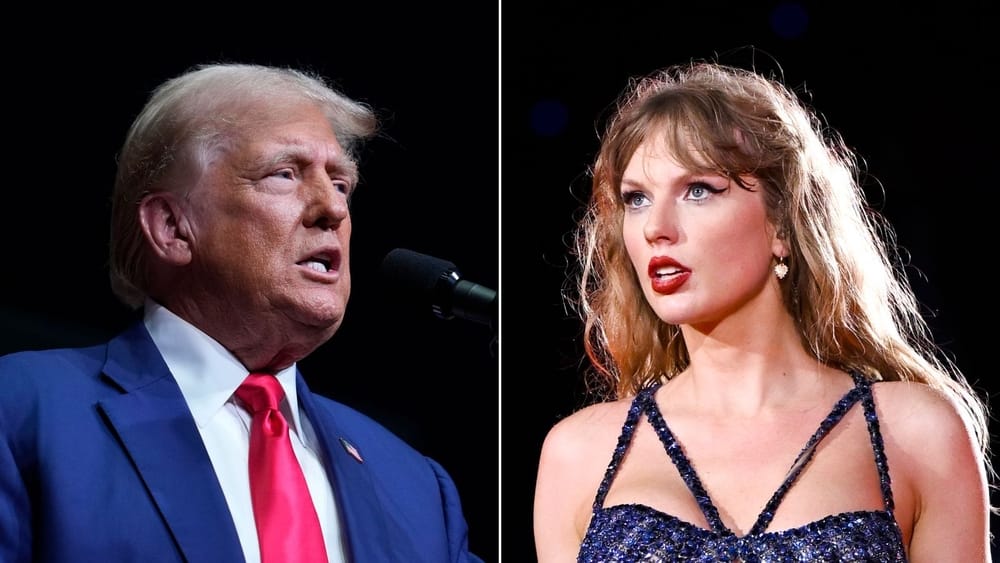Child psychologists make stunning comparison about Trump's Taylor Swift post

It was a social media post that grabbed headlines and sparked immediate conversation.
Now, professional analysts are weighing in with a truly unexpected comparison.

A Post That Got People Talking
Former President Donald Trump recently posted on his Truth Social platform about pop superstar Taylor Swift.
The post read: “Has anyone noticed that, since I said “I HATE TAYLOR SWIFT,” she’s no longer “HOT?””

Coming from a former head of state, the comment quickly circulated online, drawing widespread reaction and commentary.
It led many to discuss the nature of political communication in the age of social media.
Unexpected Analysis Emerges
Beyond the immediate political or cultural takes, the post prompted a less common form of analysis.
Several therapists specializing in child and adolescent psychology began discussing the former President's comment.

They weren't offering political commentary, but rather interpreting the *style* and *content* of the statement through a psychological lens.
Specifically, they compared aspects of the post to communication patterns sometimes observed in younger individuals.
Exploring The Reasoning Behind The Comparison
Why would professionals who work with children and teens be commenting on a post by a former President?
Their analysis focused on certain characteristics they identified within the statement itself.

One point raised was the apparent impulsivity of the comment.
Therapists noted that expressing thoughts without evident filtering or extensive consideration is a trait often seen in developmental stages where individuals are still learning emotional regulation and social norms.
The direct, declarative nature of the statement was also highlighted.
Some psychologists linked the phrasing to an egocentric viewpoint, where one's personal declaration is presented as if it universally dictates reality or popular opinion.

This perspective, while natural and healthy in young children, is typically something individuals develop beyond in adulthood.
Another element discussed was the perceived focus on external validation or reaction implied by the question "Has anyone noticed...?"
Seeking confirmation for one's viewpoint, particularly presented as a perceived group consensus, is a dynamic sometimes observed in adolescent social interactions or "groupthink" scenarios.

They also touched on the idea of "protective puffing," a term used in therapy to describe devaluing another person when feeling insecure or rejected.
While not directly diagnosing the motivation, they noted that reducing a successful person to their appearance and asserting control over their "status" could be *compared* to this defense mechanism, which is frequently seen in children dealing with difficult emotions.
The Stunning Comparison Revealed
The core of the psychologists' widely discussed analysis wasn't a formal diagnosis, but rather a striking observational comparison.
They suggested that the *tone* and *structure* of Trump's post – its directness, impulsivity, and focus on personal declaration regarding another's status or appearance – bore resemblance to certain *behaviors and thought patterns* typically associated with children or adolescents who are still developing their social and emotional regulation skills.
According to reports, some even stated that while these behaviors are expected in certain childhood developmental stages, seeing them in an adult public figure was unexpected, noting that even some children might demonstrate more developed social awareness.
This comparison, drawn by professionals from a field rarely commenting on political figures' social media use, highlights the unique nature of digital communication and how it can be viewed through various lenses.
The unexpected parallel drawn by child psychologists certainly added a new dimension to the public discussion surrounding the former President's online activity.



